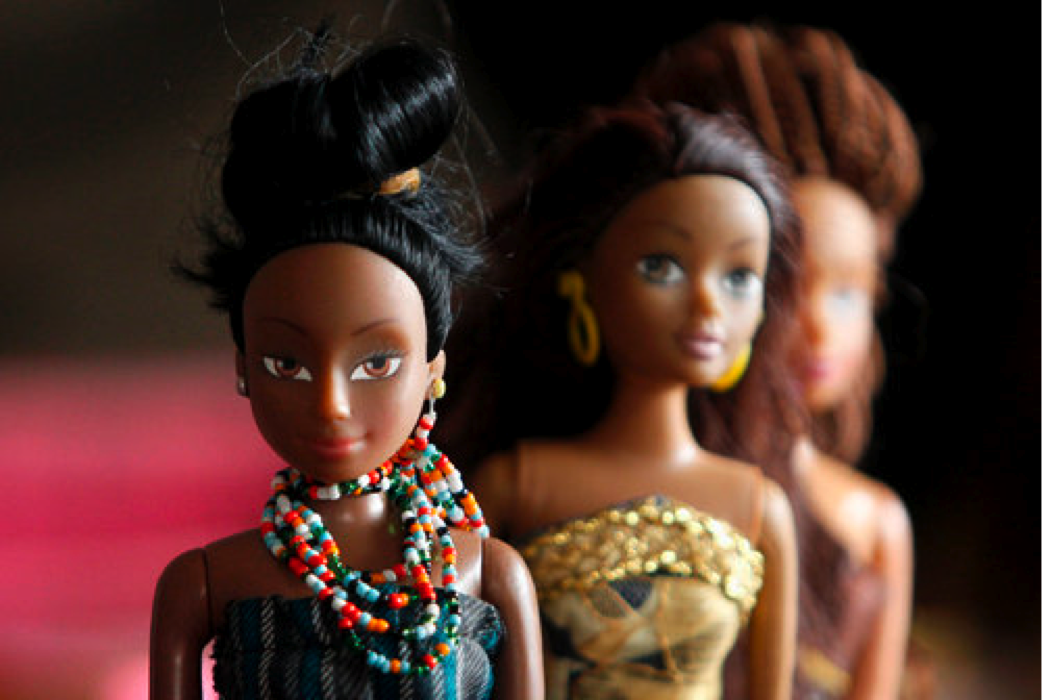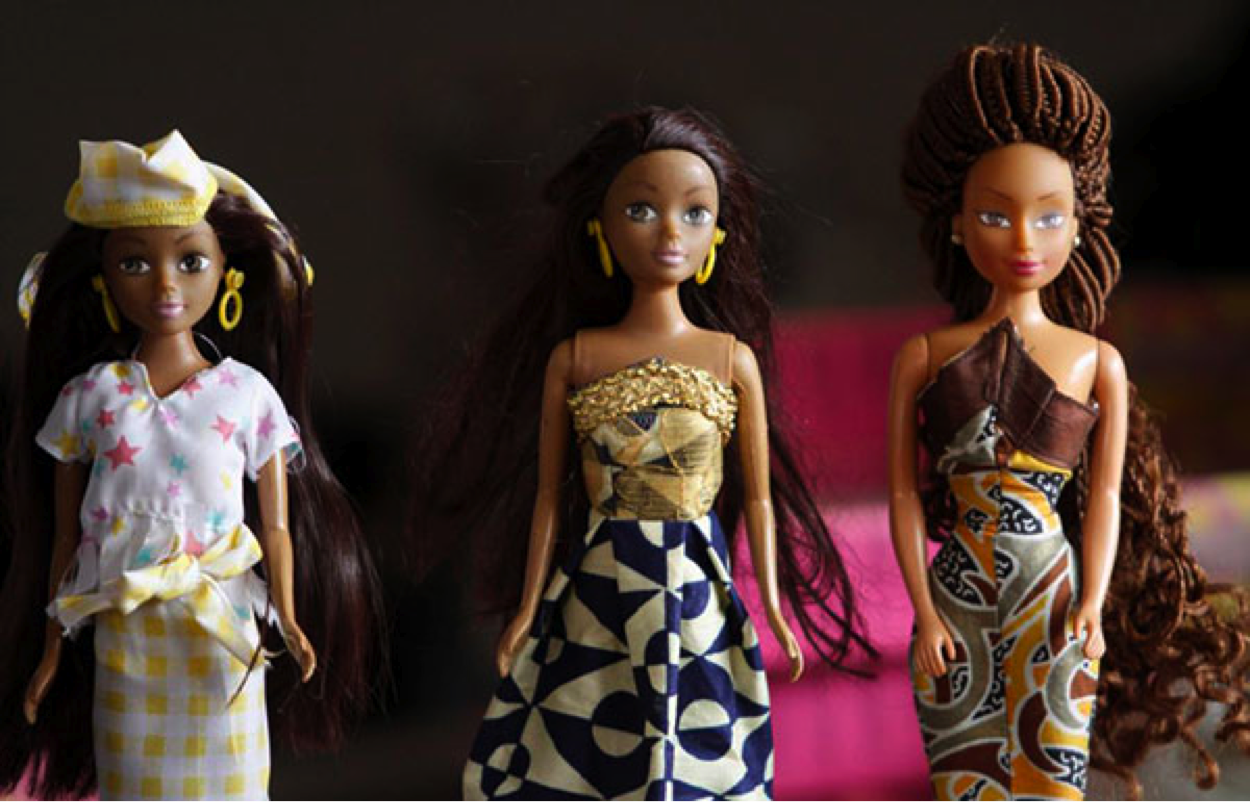Dolls are very popular among young girls. But besides being toys that children play with, dolls also have social meaning.
Girls develop a sense of who is beautiful and who is ugly based on their interaction with images from the media and also from dolls that shape much of their childhood play.
The idea that dolls could shape young girls’ development was prevalent in Taofick Okoya’s decision to delve into the toy industry with the creation of his Queens of Africa and Naija Princess dolls. He said:
[quote_box_center]I came up with the idea when I went birthday shopping for my niece and wanted to get her something that would be meaningful and also help with her development. I saw various dolls on display, and tried to rationalise how that will be of help to her development. At that point, I thought if they had African dolls she could relate to or identify with, it could have a positive impact on her. From that moment on it stayed in my mind and I started paying attention to the availability of African dolls, and realised that there were none.[/quote_box_center]
Skin tone, eye color, hair texture, hair length, hair color and physical features of dolls shape girls’ understanding of beauty.
Girls especially imagine themselves in the same light as their favorite characters, whether they are in television, film, magazines, or on the shelf at the toy store.
Okoya noticed a gaping hole in African culture–not enough Black dolls and glowing representations of young Black women to capture the imaginations of African girls.
An insufficient number of images of young African women can have a negative impact on girls’ psychological well-being.
In the absence of these images, young African girls look to images of other people for uplift, to the detriment of African culture.
African dolls, therefore, would give young African children images of beauty in African culture to admire, images that look like the reflections they see in the mirror, rather than images that reflect projections of beauty from other non-African cultures.
Okoyo’s Queens of Africa dolls are based on Nigera’s three largest ethnic groups—Nneka is Igbo, Wuraola is Yoruba, and Azeezah is Hausa.
The clothes that the Nigerian dolls wear consist of patterns, colors, and prints from traditional African dress. Okoya said:
[quote_box_center]The goal is not just selling pieces of moulded plastic, but also to inspire and create a sense of appreciation of them by promoting value, culture and a heritage…[But] we are not just selling the opportunity to be in tune with African culture and heritage, ‘Queens of Africa’ is about promoting positive attributes in the African child with the aim to empower them so that they can become more self-confident and be proud of who they are.[/quote_box_center]
The Queens of Africa dolls encourage children to understand a sense of womanhood that is uniquely African. In this way, dolls can be empowering.
The Queens of Africa collection has already received positive reviews.
One fan of the dolls wrote:
[quote_box_center]Okay, my mother always said I hated dolls. My reason, they never looked like me. Now I’m 32 and have discovered these dolls…. believe me when I say I’m buying the entire collection. This is awesome!!!![/quote_box_center]
Another advocate described the dolls with these words:
Positive. Powerful. Passionate. Progressive!
At age 43, Nigerian entrepreneur Taofick Okoya is rapidly changing the toy market in Nigeria. Currently, Okoya sells around 6,000 to 9,000 dolls each month.
In Nigeria, the Queens of Africa and Naija Princess dolls are outselling Mattel’s Barbie dolls. He has plans to expand the sale of dolls to countries across the Africa continent.
The overall vision of Okoya’s company is “empowerment through play and the power and value of education on the African child.”
In addition to the dolls, he plans to develop books, music, comic books, and animation series with the goal of expanding the reach of the company’s vision.
He also intends to work with African designers and celebrities on a collection of dolls to raise money for an education-focused charity
With entrepreneurs like Okoya, the future of African children and their self-esteem and self-worth is looking very bright.












I am a man with 34 muscles in my back,72 on my chest and abdomen alone, 8 distinctly carved in my midsection, 112 on each leg… and more. I too have dolls in my house. They are all Queens of Africa. Thank you. Its a pleasure.
This is certainly edifying. Certainly edifying! I am going to order some of these dolls right now.
Have these dolls yet made it into the America’s? I am sure the free trade hypocrites will slap a bunch of taxes on importing these dolls into America for example. They say they are capitalists but they hate competition.
I wish the dolls were a little darker. I also wish their hairdos were more African.